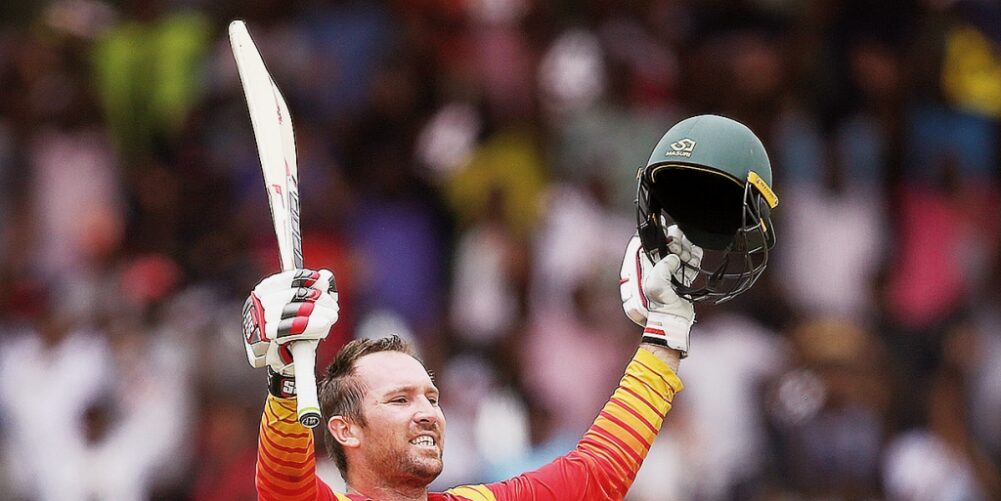After disappointment, there are a few alternative routes for an organisation or a sports team to take.
There is stability, reasoning that those who failed will learn from their errors and put things right; there is well-reasoned change, carefully analysing what went wrong, making carefully-judged changes in personnel, aiming to tweak the structure to subtly improve, while retaining what works; or there is the ‘burn everything to the ground approach’ – fire everyone and try to reinvent the wheel.
The third approach, of course, can be necessary. But it can also be deeply damaging – for if a side is flawed rather than rotten to his core, the fire everyone approach risks losing everything that is good about a side, and destroying all that has been built up. It is this approach, alas, which Zimbabwean cricket have adopted since failing to qualify for the 2019 World Cup.
They were extraordinarily close to doing so. Had Zimbabwe scored another four runs against the UAE, they would have won and qualified for the tournament. For all this despair, the root cause of Zimbabwe’s failure was the ICC’s decision to contract the World Cup to ten teams; had the tournament been 14 or even 12 sides, they would have qualified.
Prior to the qualifiers, Zimbabwean cricket had been a quite successful story in the past 12 months. Last year, Zimbabwe defeated Sri Lanka 3-2 away – their first away victory in an ODI series for 17 years. With Brendan Taylor and Kyle Jarvis returning to international cricket, after their hiatus in the county game, the team was shaping up as stronger than for many years under head coach Heath Streak.
All of this progress, alas, is now endangered. In the aftermath of missing out on their first World Cup since 1979, Zimbabwe Cricket have fired the lot of them – Tatenda Taibu, the convenor of selectors; Streak, the head coach; captain Graeme Cremer; and the entire backroom coaching staff.
As David Coltart, the former Zimbabwean sports minister said: “It is one of the most absurd and damaging decisions made by any sports body ever in Zimbabwe’s history.”
The players, coaches and support staff are easy scapegoats. Yet the truth is – in beating Afghanistan, and coming agonisingly close to beating West Indies, too, Zimbabwe performed admirably enough at a time when the global ODI game has never been more competitive.
The real problem in Zimbabwean cricket is not the team. It is, as in so many sports organisations, the suits.
Consider some of the findings in a devastating statement by Coltart, based on information leaked form within the organisation.
-
Five days before Zimbabwe’s opening World Cup Qualifying match, the organisation’s head of human resources contacted all staff to let them know that they would now only be paid 40 per cent of their salaries due to financial problems: an extraordinary indictment of Zimbabwe Cricket’s mismanagement, given the $93m they receive from the ICC from 2016-23; and catastrophic on the brink of a seminal tournament in Zimbabwe’s cricket history. Streak managed to convince the board to pay the players in full, but accepted the cut for himself, making his subsequent firing all the more astounding.
-
During the tournament, the board did not provide the team with enough cricket balls for training, so the side had to borrow some from the ICC.
-
The board bought motorised super soppers before the tournament but failed to pay for duty. This meant, during the rain-affected game against the UAE – when a fuller game would have significantly increased Zimbabwe’s prospects of victory – the soppers could not be used.
-
No domestic competitions will be completed this season.
In light of all these obstacles the remarkable thing is not that Zimbabwe only narrowly failed to reach the 10-team World Cup, it is that the players were so successful in rising above these difficulties and almost making it.
Yet as Zimbabwe Cricket – out of a combination of covering up their own failings, and a certain disbelief about how competitive the global game now is – destroy all that has been good about the side in recent months, the consequences for the sport there threaten to be shattering.
It is no exaggeration, as Coltart says, to fear that Zimbabwe may even become another Kenya – who have utterly collapsed, largely due to administrative incompetence, since reaching the 2003 World Cup semi-finals.
Players who have returned, or those with offers elsewhere, will see an organisation that has taken leave of its senses and be tempted to depart for good.
That would be profoundly sad. There is a lot to like in Zimbabwe’s side – think of Taylor’s batting, Cremer’s leg-spin, or Sikandar Raza’s all-round prowess and off-field eloquence.
In a country with a tragic recent history, the cricket side serves as an outlet of national unity and, as the phenomenal support they enjoyed all tournament showed, can bring great joy. A successful national team can also, as Coltart points out, bring in essential foreign currency to the country and bring livelihoods for thousands connected with the game.
All those who want to see the international game grow, and cricket be vibrant in as many countries as possible, should hope that Zimbabwe Cricket stop their purge before it sets the nation’s cricket back irrevocably. It may already be too late.















